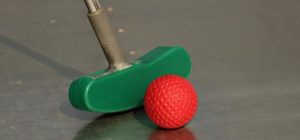It’s hard to find punishments that really work. It’s even harder to find ten punishments that work consistently.
The dilemma is that most children have creative ways to be disruptive and can push their parent’s buttons consistently.
Punishments can be a smart way to discipline children who constantly test the boundaries and who continuously show disruptive or negative behaviour.
Ultimately, creative and positive punishment goes a long way in ensuring your baby is responsible and can make prudent choices.
Remember, not all punishments are effect as others.
From the Top 10 Punishments for Kids, some punishments work better than others.
Unfortunately, there isn’t a hard and fast rule to finding the perfect punishment fitting your child. Instead it’s really a trial and error process to find the best punishment that works for your child
Before we reveal the “Top 10 Punishments for Kids” and the “Ten Punishments That Work”, it’s important we need to understand how to make the punishment effective.
For the discipline to be effective the punishment needs to be:
- Given by an adult that the child has already bonded with
- Be consistent and used frequently
- Recognised as fair by the child
- Developmentally appropriate
- Promote an element of future self-disciple
Top 10 Punishments for Kids: Practical Examples
It’s so important to make it clear to a child when they have poor behaviour.
You want to ensure they don’t repeat the mistake.
Sometimes this means being more involved in the punishments you make.
Here are the Top 10 Punishments for Kids:
1. Time to do housework
There’s nothing worse for a kid than having to do chores around the house.
Therefore, you should assign them with housework.
As it says on first cry parenting, you could give certain chores points.
So if they have been very disruptive they will have to do more such as washing up.
2. Take away technology
As we all know, kids are addicted to technology nowadays.
Therefore, one of the best punishments you can do is to take away their favourite piece of technology.
Whether that is their phone or tablet, stop them using it for a certain amount of time.
3. Cancel play dates
Your kid loves hanging out with their friends. So you should cancel that upcoming play date.
They won’t want to repeat this punishment as they won’t want to stop seeing their friends.
4. Send them to bed early
Kids are always trying to delay bedtime, especially during the summer holidays.
Therefore, you should send them to bed early.
That will stop your child misbehaving as they won’t want to head to slumber early in the evening.
5. Increase their pet duties
This punishment is a great idea if you have pets in your household.
As much as your child loves playing and cuddling their furry friend, they don’t like the hard parts such as feeding, walking and cleaning.
Therefore, get them to clean out their hutch or litter tray.
You could even make them take their pet outside for a stroll around the garden.
6. Time off groups
If they love going to a group or activity, it’s worth stopping this if their behaviour is out of control.
Whether it’s swimming or football, stopping them going will ensure their behaviour improves.
7. Make them work on school work
There’s nothing worse than having to do school work when you are at home.
So make your child do school work.
Getting them to work on sums and spellings will ensure their behaviour improves.
8. Get them to help with dinner
Your kid will rarely help out with dinner preparation. Therefore, you should get them to help out with dinner.
Not only is it a learning exercise, but it will ensure they don’t repeat their bad behaviour.
9. Make them do something rewarding
Whether your elderly neighbour needs help with her garden or their sibling needs assistance with homework, you can punish your kid by making them help out.
10. Time to stop in their room
Keeping them in their room for a period will serve as a good punishment.
They will get bored with those four walls and will want to act better in future.
Using the ten punishments that work along with an effective discipline framework will give you the edge to proactive parenting and self-discipline
Ten Punishments That Work! (In-Depth Analysis)
1. Time-Outs
These can work very well for older children but still work for younger children if used correctly.
You want to make sure that the child responds well to the time out.
Try it consistently first and see if it works well.
The overall benefit should be for your child to sit down, think about what they have done and then come back into the general setting more calmer and less aggressive.
This is the same for all ages.
If your child doesn’t respond well to time outs or is coming back more disruptive then you will need to use other forms of punishments.
Remember as a rule of thumb you should set a time out for 1 minute for every year old your child is.
So a 4-year-old will have a 4 minute time out.
2. Take Away Privileges.
Within the ten punishments that work, taking away privileges is one of the higher-ranking ones.
This is a great way to punish smaller misdemeanours and works well for all ages.
A privilege can be a toy, an event or even their favourite TV program.
Essentially it’s something that they value that you can take away to show them that whatever behaviour you’ve just witnessed is not appropriate.
This is a smart way to proactively discipline behaviour and can be used progressively.
For example. “If you continue to empty the toothpaste out on the floor then I will take away teddy bear for 2 hours”.
Then if the behaviour hasn’t stopped,
“Ok, now we will not be watching Peppa pig at lunchtime”
Lastly if that doesn’t work,
“If this behaviour carries on then I will have to cancel your attendance to harry’s birthday this weekend”
You can chop and change either category with another privilege and this punishment works well for restriction for older children as well. (i.e. I will change the Wi-Fi password and you will not get it back until you’ve tidied your toys away)
3. Ignore Mild Disobedience.
It’s important you understand that you have to pick your battles to win the war!
This is a smart pick of the Ten Punishments That Work!
Sometimes you don’t need to respond proactively to every small disruption or behavioural mishap.
It’s best to save your energy for the bigger events and the ones that you can create strong and clear examples against.
4. Teach New Skills
This is a great way to change negative behaviour into positive behaviour and can also be used as a bargaining chip for better behaviour in the future.
Here you introduce a new skill that you both do together. i.e. Painting, Drawing, Playing an instrument.
Now once you have bonded over this activity you can present it as leverage to encourage good behaviour.
For example, “Sweetie, if you don’t eat all your dinner then we won’t be able to play our trumpet together later. I always look forward to that and I know you do too. Let’s finish our dinner so we can go play together as soon as possible’
It’s a smart way to use playtime to deflect disobedience and gives the added bonus of getting to spend quality time together!
5. Logical Consequences
This is a parenting tactic for clarity and can help when issuing punishments.
Instead of having a variety of different reasons why your child should do something just provide one
For example, if your son is making a mess and is not picking up all his toys you can say “If you don’t clean this mess up and pick up your toys right away I will take them away for the rest of the day’
This a smart way to get immediate results as long as you follow through.
6. Natural Consequences.
Children are smart and will find creative ways to misbehave. Sometimes the best form of defence is a good offence.
Your aim here is to give your child enough independence to come to their own conclusion about their decision.
This is often overlooked when thinking about Ten Punishments That Work.
For example, if it’s raining lightly outside and you’ve asked your son to put his jacket on but he won’t listen, then allow him to go out in his t-shirt.
Let him find out for himself the reason you wanted him to put his jacket on in the first place.
Sometimes the best form of parenting is letting them solve their own problems when it’s safe to do so.
7. Reward Good Behaviour
It’s good to focus on good behaviour when your children show it and reflect less on bad behaviour.
Children crave attention and will find creative ways to get it.
If they see that you respond more to their ‘disruptive outbursts’ then you do to their ‘ambitious singing attempts’ then they’ll continue to do what they get the most attention from.
This will help emphases that good behaviour is focused on more than bad behaviour and that your attention is restricted to those that follow the household rules.
8. Restitution
In the real world, there are consequences for rules broken. Show your child that this is the case at home through constructive household chores.
For example, if your child purposely spills milk or food on the floor then ask them to mop or sweep it up.
This is a good way to show them that they must make right what they do wrong.
Remember many children enjoy tidying up as much as they enjoying getting messy, so you can tap into the play element of being neat and clean!
9. Grounding
This works well for older children and can often be a great deterrent for further negative behaviour.
Temporarily reducing their social activity is an effective way to discipline their behaviour and can work well to make them understand that there are consequences for their actions.
If you can’t ground your child or they are too young then try and cancel day trips or restrict their activity at popular events.
Most children hate this one, but it’s one of the most used of the Ten Punishments That Work!
10. Force apologies
This is often the most overlooked of the ten punishments that work but works very well.
Children rarely do things in spite. Usually, they act out of fear, guilt or as a reaction for something that was done to them.
Forcing an apology can have positive effects on your child’s development and deter him from disruptive activity again in the future.
For example, if your child is playing, slightly rough, with their neighbour and he accidentally knocks him down, then force him to apologies.
Try to make it a more of a public apology as seeing other people acknowledge his apology will help him to understand that this is a socially acceptable thing to do.
Also, you give him the ability to accept fault and allow the other child to forgive his actions.
This is a smart way to teach self-control, self-discipline and are building block to for better social relationships in the future.
Age Appropriate Punishments
It’s also important to remember that not all punishments work for different children of different ages.
I.e. What works for a 2-year-old may not work as effectively for a 4-year-old and what works for a 5 year probably won’t work for an 8-year-old.
The bottom line is it’s a trial and error process but once you find a few punishments that work you should use them repeatedly until your child is developmentally ready for others.
Self Discipline
Effective discipline provides the framework for children to live in the real world happily and more problem-free.
This should be your first aim before thinking about the Top 10 Punishments for Kids.
The aim should be to promote acceptable and appropriate ways of behaving and encourage mature adults.
It is also important for their mental and behavioural development and will promote self-discipline.
This is a crucial element and should be the primary aim of your discipline efforts.
Self-discipline is the highest achievement for effective disciple and will help your children learn to be proactive in their behaviour instead of reactive.
Your secondary aim should be focused on limiting disruptive recurring behaviour from happening again.
This means that your discipline efforts should be focused on providing support as a basic framework.
It also must include communicating with your children, no matter the situation, that you love them and are there to help them.
Remember, you should always aim to show respect in your methods of punishment and encourage your child to show respect back.
This is a mutual relationship of respect and trust and in this foundation, you’ll see much greater success in positive discipline techniques.
Consistency is key as children learn both verbally and non verbally by your actions.
You should remain consistent in your punishments and ensure you choose the appropriate punishment for the behaviour that is disruptive.
Being your child’s primary role model your actions will have a great impact on the way they respect authority and function in society.
So that was the Top 10 Punishments for Kids.
There is no 1 size fits all so be sure to try a few and use trial and error to find the best way to discipline your child. Good luck!
Related: Effects Of Slapping A Child In The Face

Iesha is a loving mother of 2 beautiful children. She’s an active parent who enjoys indoor and outdoor adventures with her family. Her mission is to share practical and realistic parenting advice to help the parenting community becoming stronger.








